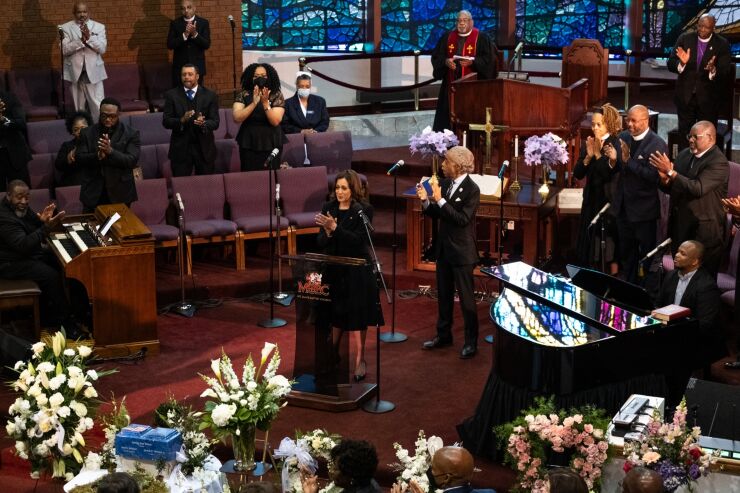The racist massacre last month in Buffalo is spurring reflection in the industry about its particular connection to wealth — even as more mass shootings highlight the magnitude of America’s problem with gun violence.
Nine Black grocery shoppers and a security guard from the city’s East Side died on May 14 in an attack that the county’s sheriff
The further terror of another shooting 10 days later at a school in Uvalde, Texas, that killed 19 children and two teachers, as well as the political questions surrounding gun control, only add to the urgency of all of the issues underlying the violence.
“In the wake of George Floyd’s murder two years ago, many wealth management firms made corporate commitments to advance racial equity,” Akeiva Ellis, a financial education specialist with
To financial coach and columnist
“If there are people who want to create change or if they want to create a solution, then do that. That's my advice,” Sabree said. “Don’t look for Black people to solve the problem or to teach you how to solve the problem of hating Black people. It’s not for us to do that education. We just exist. We want to exist.”
At socially responsible investment manager Adasina Social Capital, the Buffalo massacre didn’t shock founder Rachel Robasciotti either, she said. In a
“Because they've lost the future, all they have left is their violence,” Robasciotti said. “We're not so separate as we think, and it's our illusion of separation that will ultimately become our undoing. … We see the clear narrative in the middle of it, and we have this other narrative, which is connection, community and equity. It may sound like these are all different issues, but they're not. It's all one narrative.”
In the suburban Buffalo office of Level Financial Advisors, the company conducted a food drive to provide groceries for East Side residents who are no longer able to shop at Tops Friendly Market, according to
“There are not a lot of people of color in our industry, and we also think that there needs to be early education about financial wellness in high schools,” Heburn said. “We think the best way we can do that is by trying to advance our industry into these areas and see if we can try and recruit more young people to be a part of it.”
For many, the massacre underlined what experts refer to as a “
“Corporations and our clients alike can meaningfully address these causes through impact investing, philanthropy and the decisions we make in our day-to-day lives. It’s an opportunity to look inward and question our motives, behaviors and actions,” she said. “Removing access to fresh food forces residents to spend more money on transportation to get food from a further location. Alternatively, some residents increase their reliance on fast-food restaurants, which typically don’t serve fresh, healthy items. This, in turn, has the potential to promote residents’ long-term health issues, which costs even more money to address. It’s a vicious cycle that can have a generational impact.”
In addition, Buffalo serves as a reminder that “closing the racial wealth gap and fighting white supremacy go hand in hand,” Ellis added. “This work requires more than knowledge and lip service. It requires us all to act.”
Her comments echo the pleas made to U.S. senators at a hearing this week by the son of 86-year-old Buffalo victim Ruth Whitfield,
“You were elected to protect us. I would ask every senator to imagine the faces of your mothers as you look at the face of my mother, Mrs. Ruth Whitfield,” Whitfield said. “Is there nothing we can do? Is there nothing that you personally are willing to do to stop the cancer of white supremacy and the domestic terrorism it inspires? If there is nothing, then, respectfully, senators, you should yield your positions of authority and influence to others that are willing to lead on this issue.”








